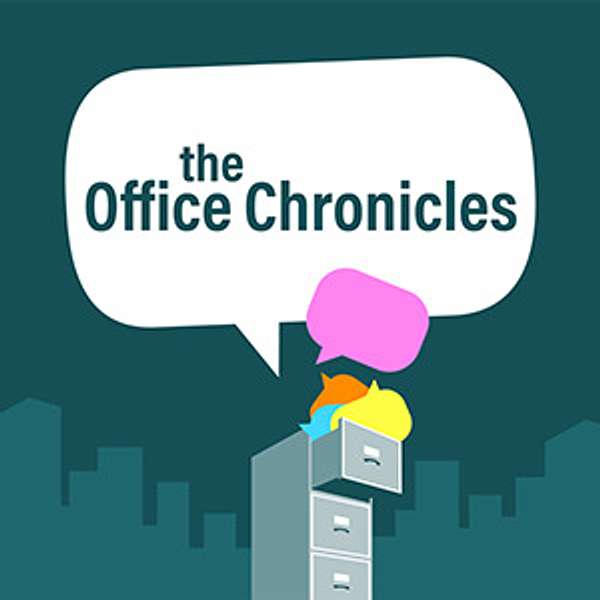
The Office Chronicles
The Office Chronicles
The Time and Space Complications of Hybrid Work with Neil Usher (Space Matters, ep.2)
Summary
Workplace strategist Neil Usher joins Kursty to discuss the nuances of navigating hybrid work, brain states that trigger creativity, and the research opportunities we missed in the pre-pandemic world. In their conversation, they accentuate that what makes hybrid working complicated is not just the space aspect but the time aspect as well. They chat about self-imposing discipline, internally inspiring creativity, and managing time and space when you work from home.
Neil Usher is the Chief Workplace & Change Strategist at GoSpace AI. He has 20+ years of experience managing property portfolios and large-scale organizational change. He is the author of the two books The Elemental Workplace: The 12 Elements for Creating a Fantastic Workplace for Everyone and Elemental Change: Making stuff happen when nothing stands still.
Support the show
Timestamps
[00:41] Who is Neil Usher from Go Space AI? (and highlights from the conversation with Neil)
[05:36] Why Neil wrote his two books Elemental Workplace and Elemental Change.
[08:54] Why coordinating time is more challenging than coordinating space in the hybrid working world.
[15:45] Is there more value to working alone or working together?
[25:00] How has the pandemic changed the 12 elements of the workplace?
[28:52] The value of your unpublished work (don’t throw it away)
[32:32] How to leverage your two brain states (beta state and theta state)
[39:18] Self imposing discipline when you work from home
[43:24] How to connect with Neil Usher.
3 Key Takeaways
- Time is more complicated than space. Before the pandemic, you knew where your colleagues would be at any point in time. Now, you need to make more decisions like where you will be at which point in time and where people you work closely with will be as well. Flexibility adds complexity and adds a mental burden.
- There is a value to being alone and a value to being together. We instinctively feel that there’s value to being together, but we didn’t use the decades of opportunity we had to explore the value of being together in a scientific way. We have a lot more data on the value of working alone from the past 2 years because we consciously looked for it. We need a dynamic data capture to accurately understand how we work best.
- Inclusion has become one of the most important elements of the workplace. The pandemic has shed light on the range of considerations we need to keep in mind when we think of inclusion.
Links
The Elemental Workplace: 12 Elements for Creating a Fantastic Workplace for All
Elemental Change: Making stuff happen when nothing stands still
Connect with Neil Usher: LinkedIn | Twitter
Connect with Kursty Groves: LinkedIn | Twitter | Ask a question or pitch an idea: kursty@shapeworklife.com
Follow The Office Chronicles Linkedin page for more information, to share an idea for an episode or start a conversation around any f the topics covered in the show.